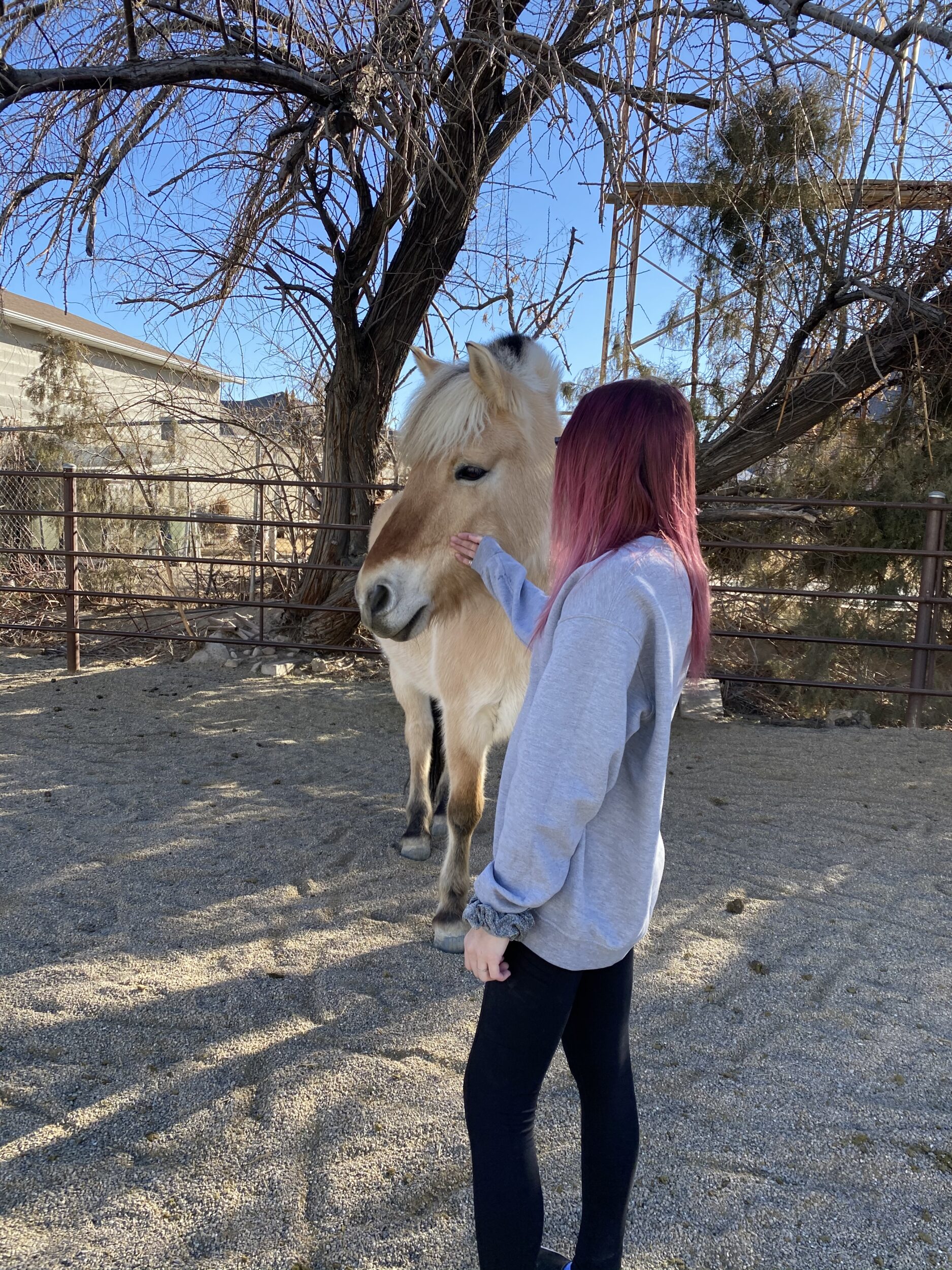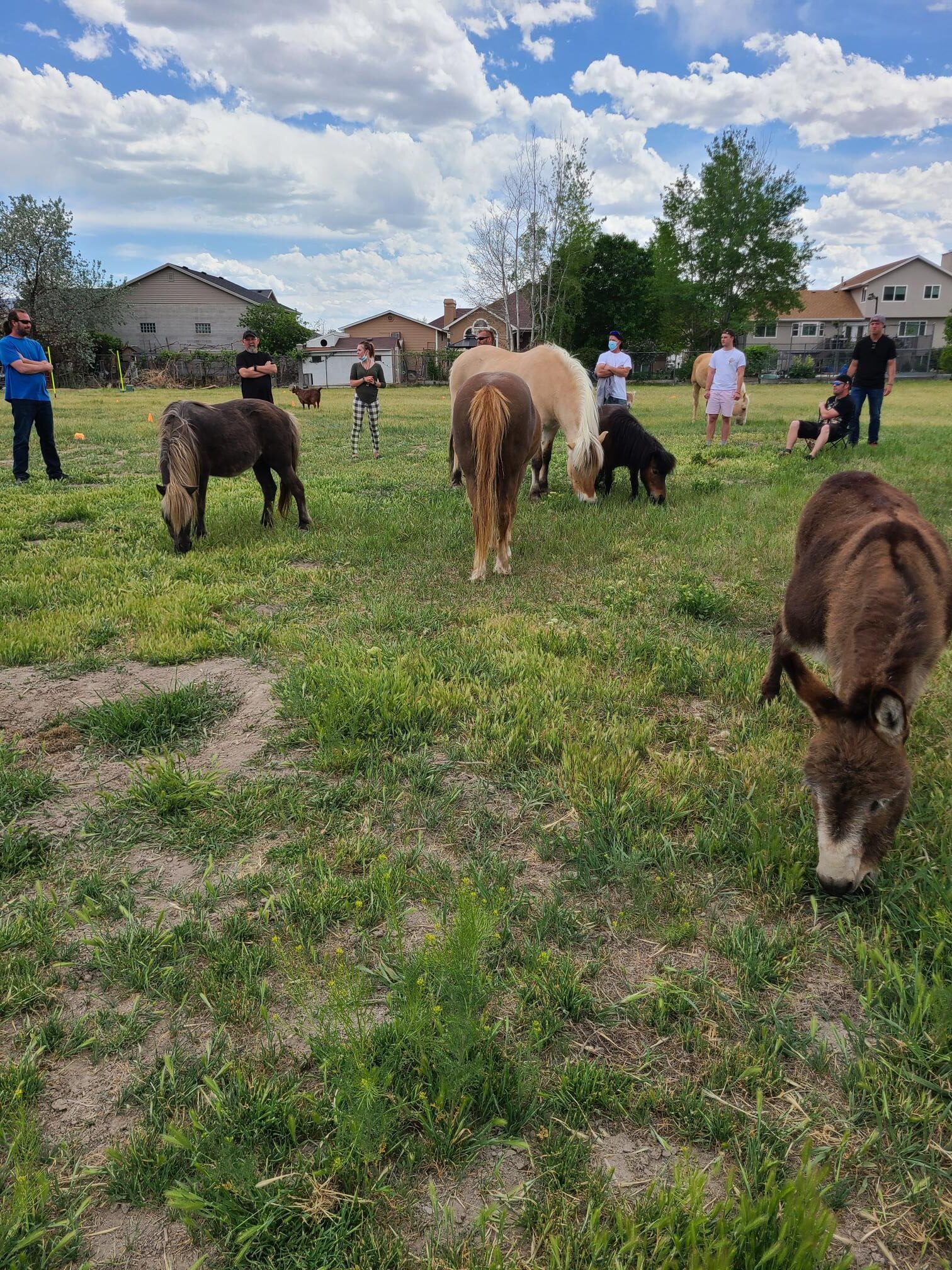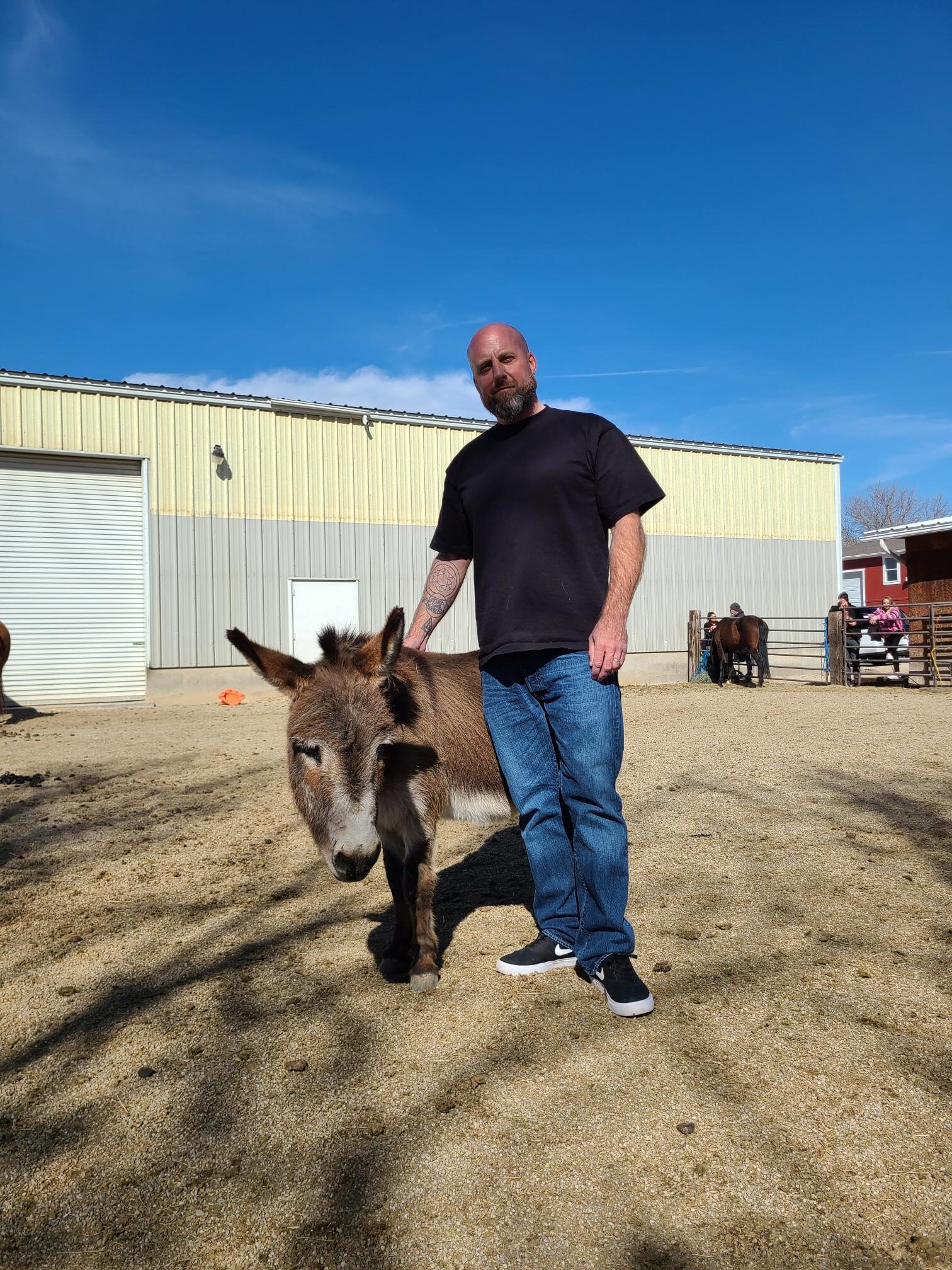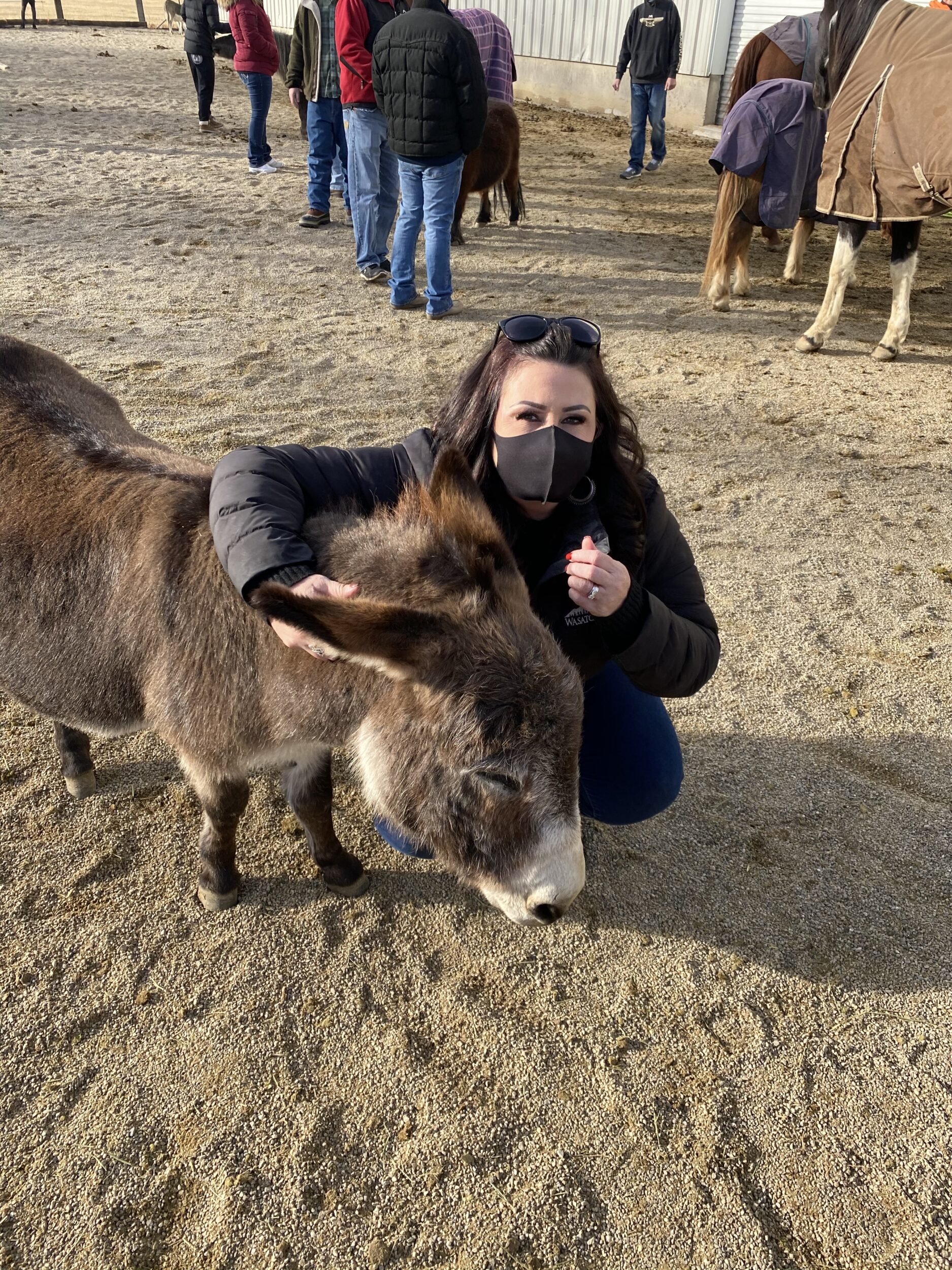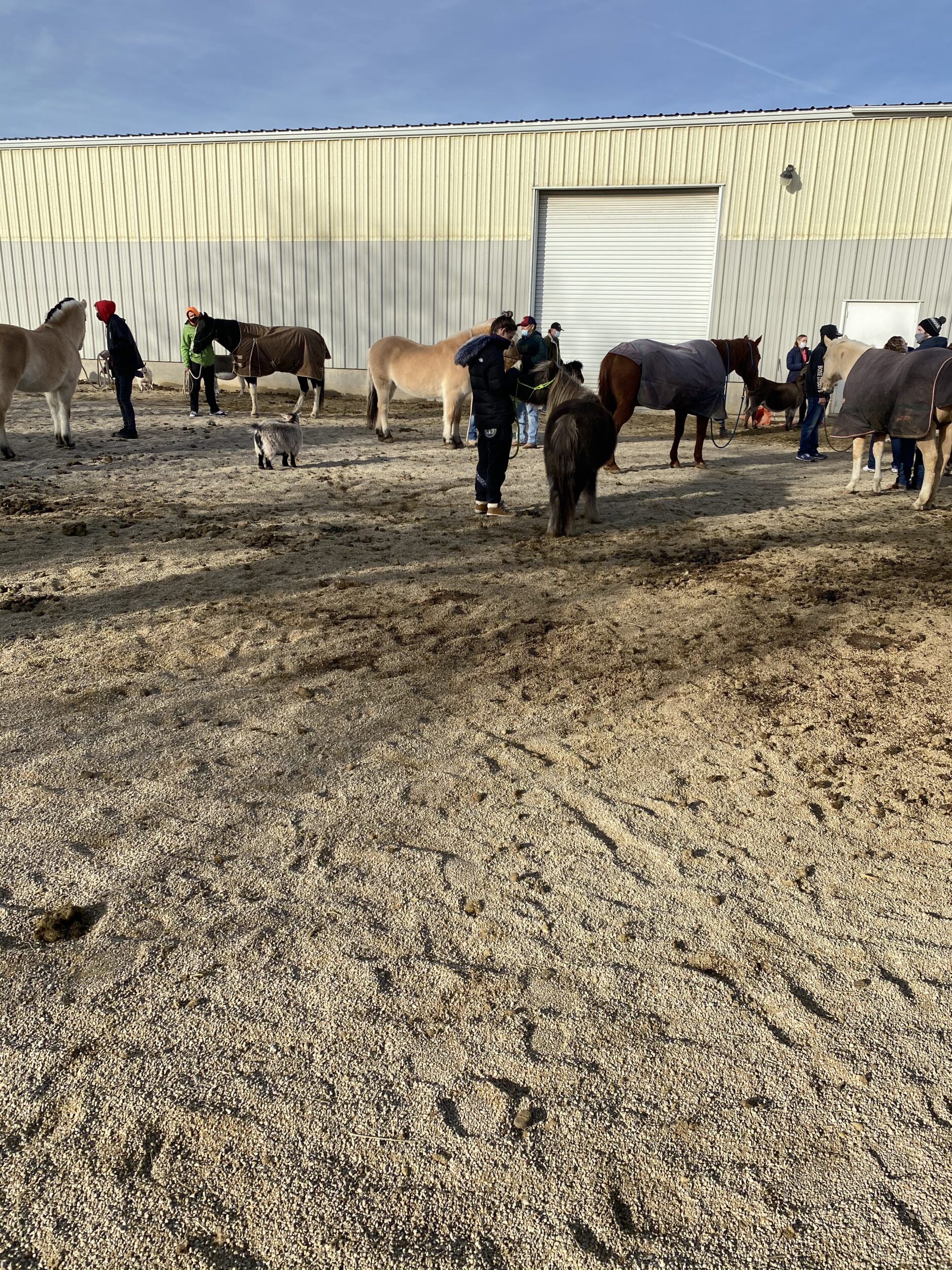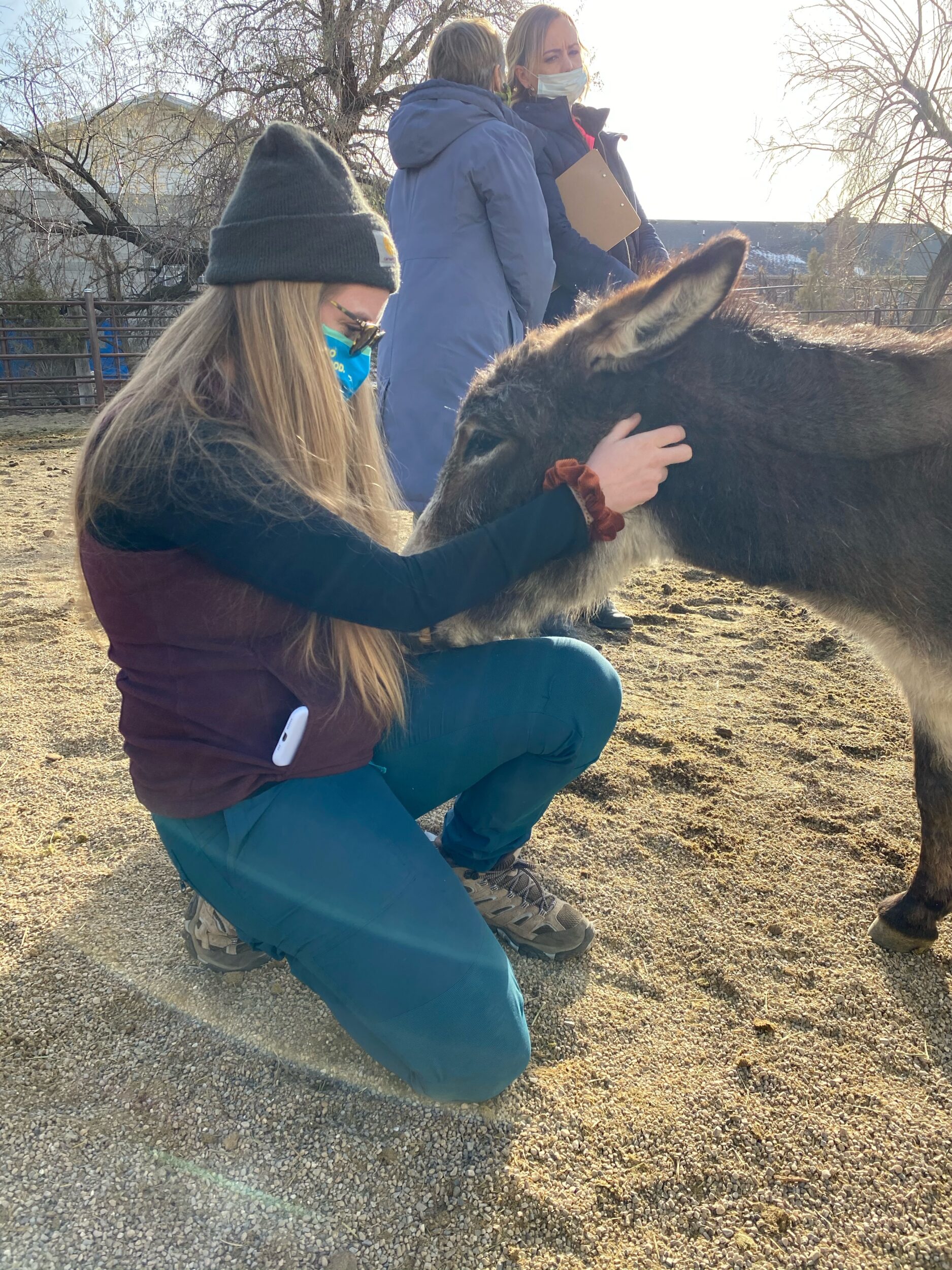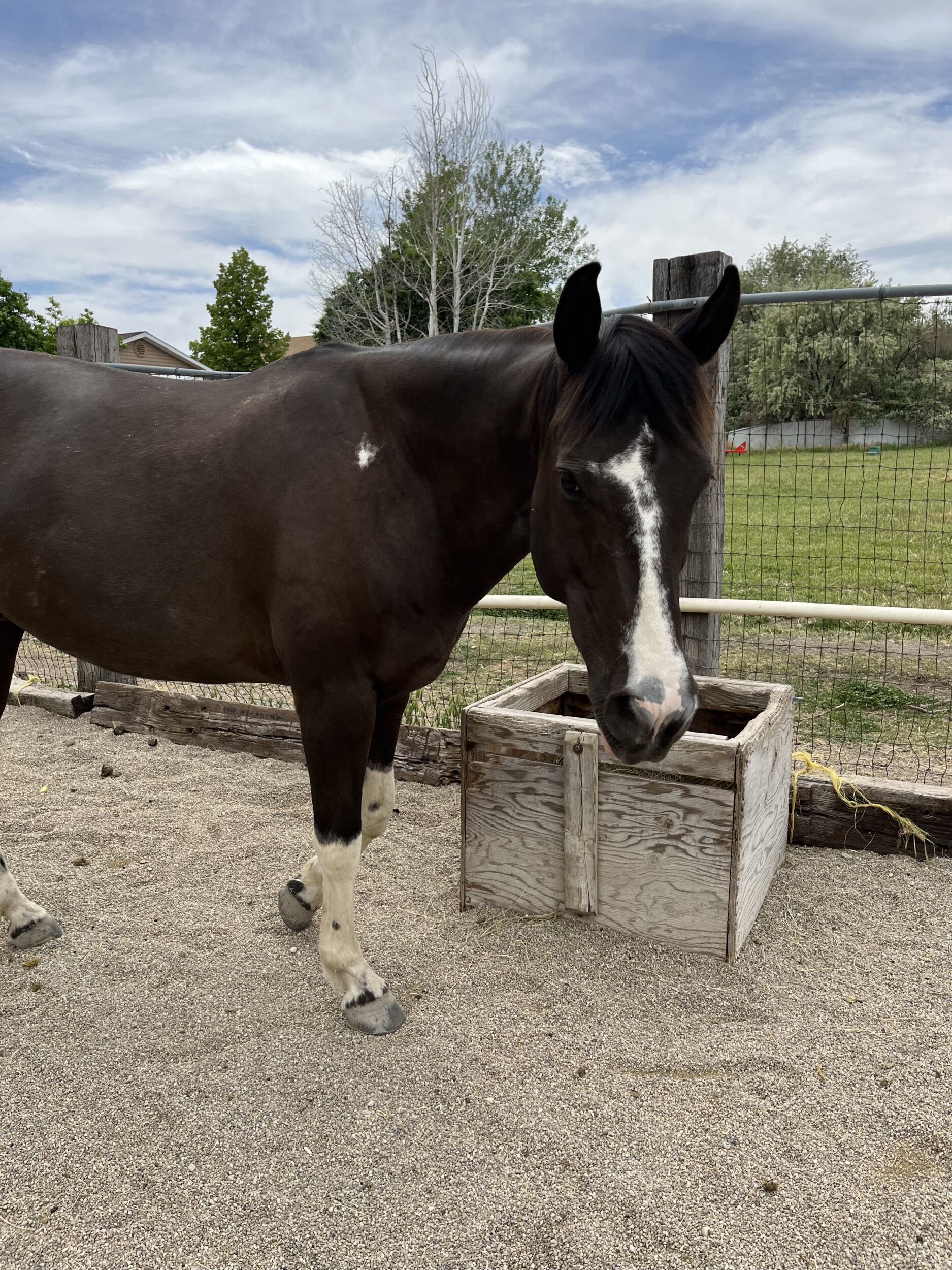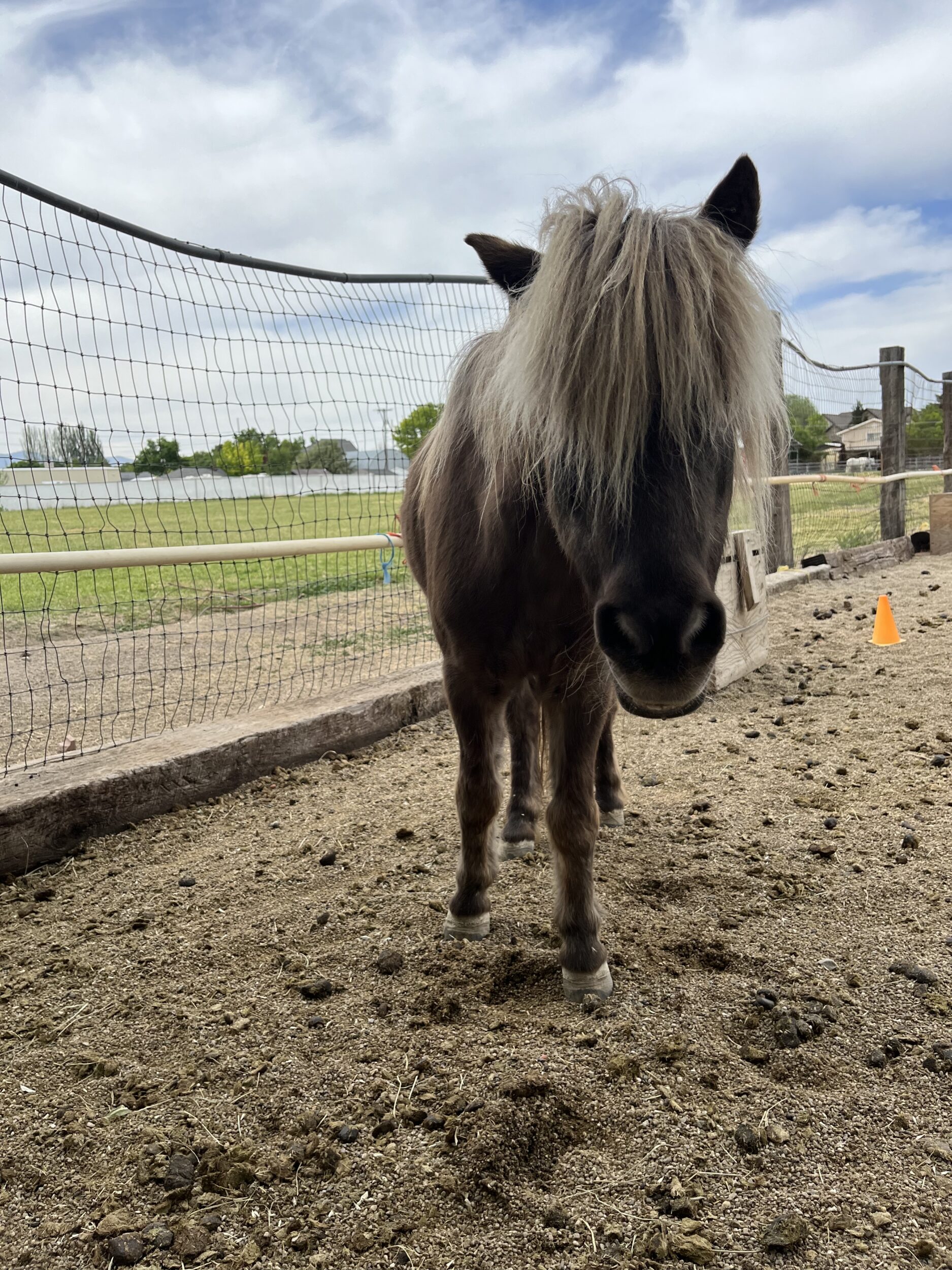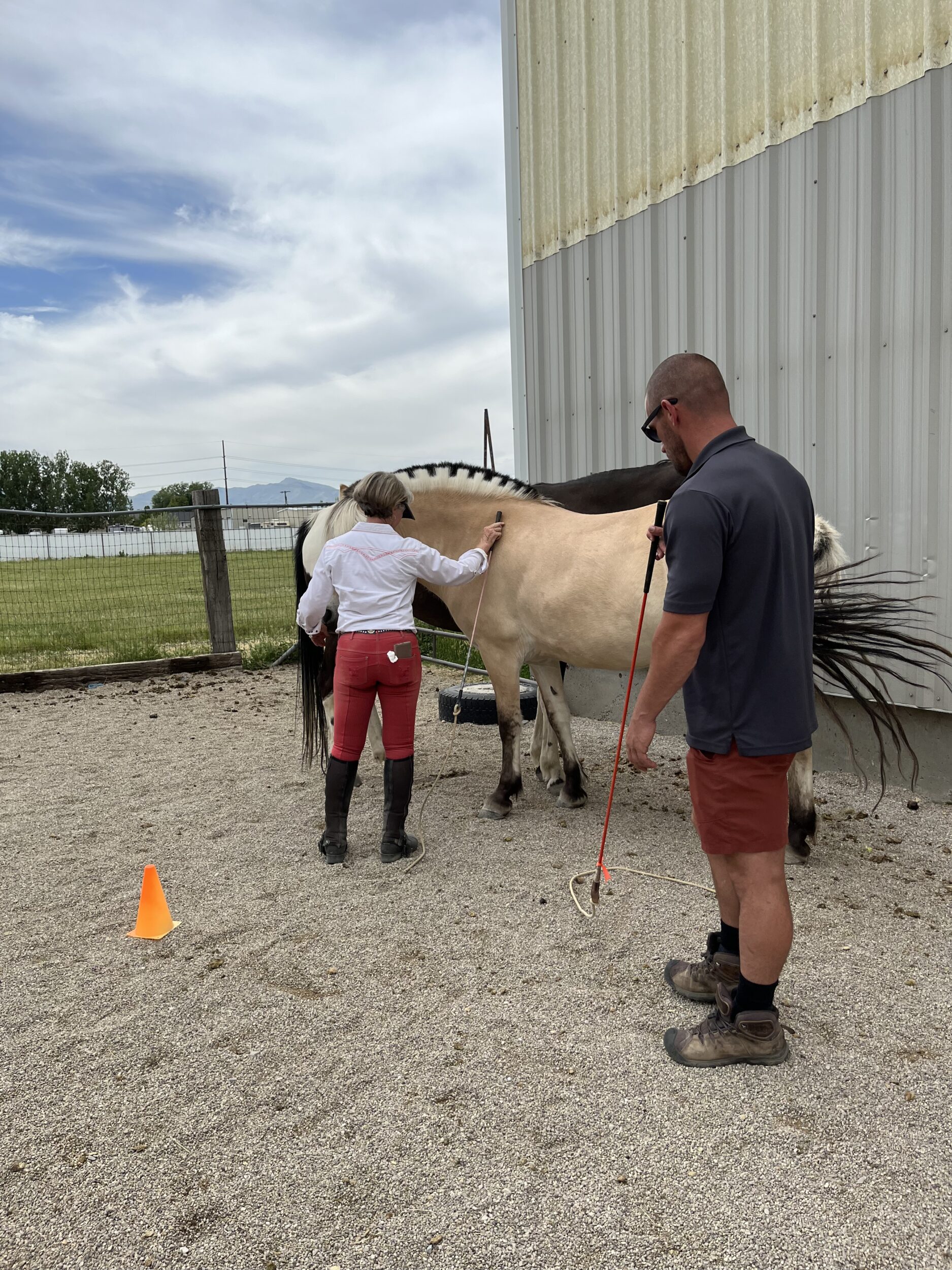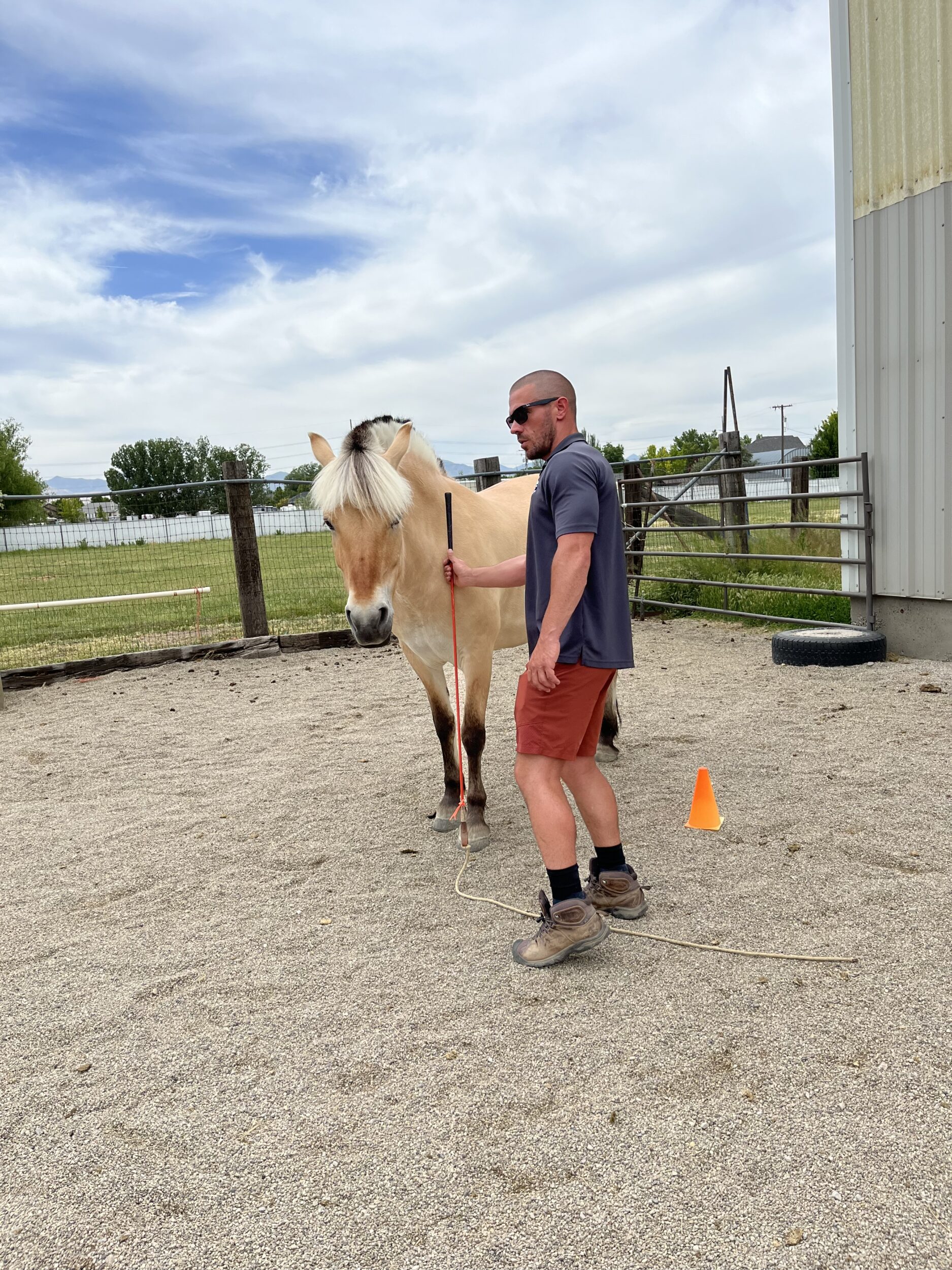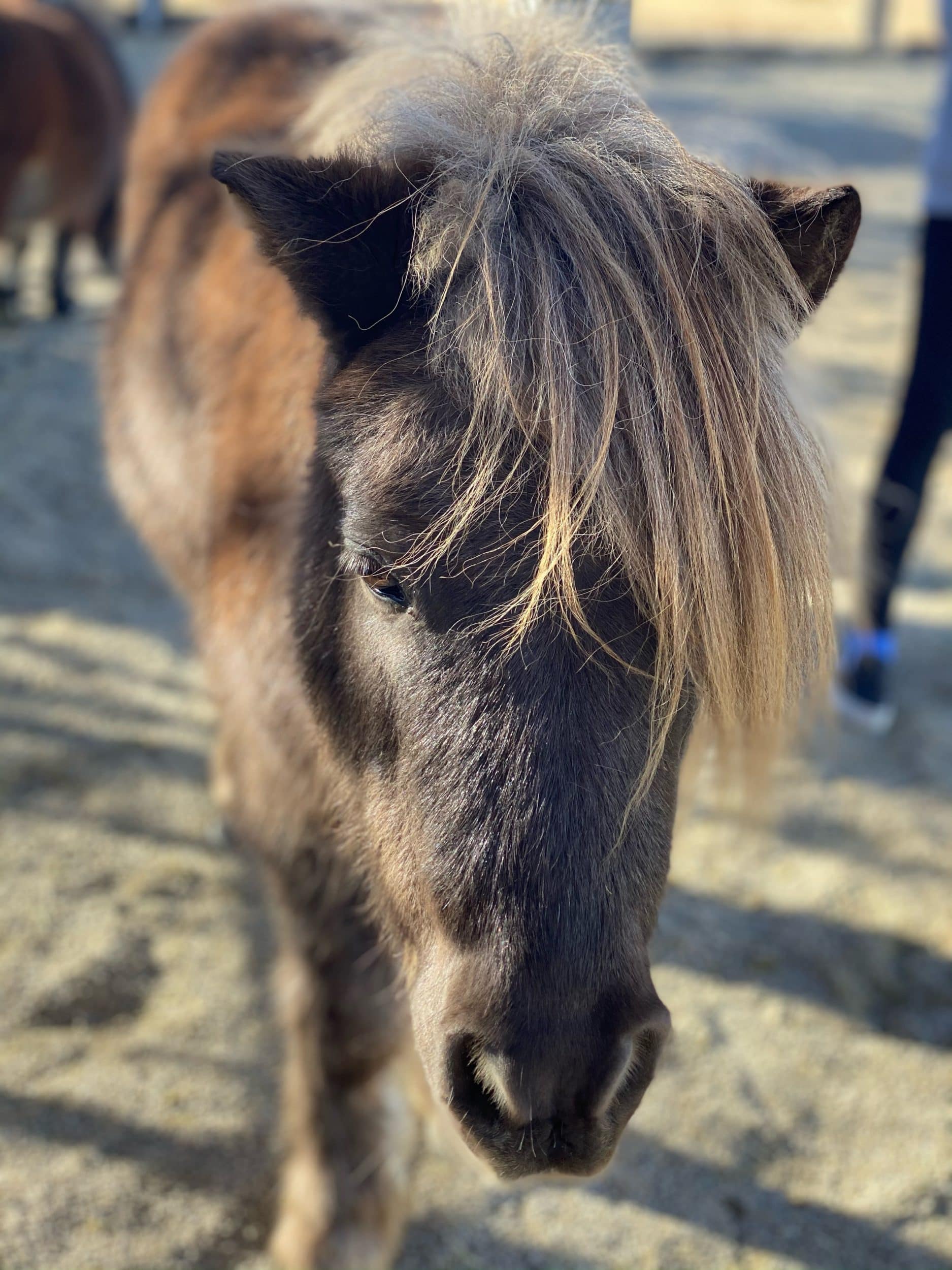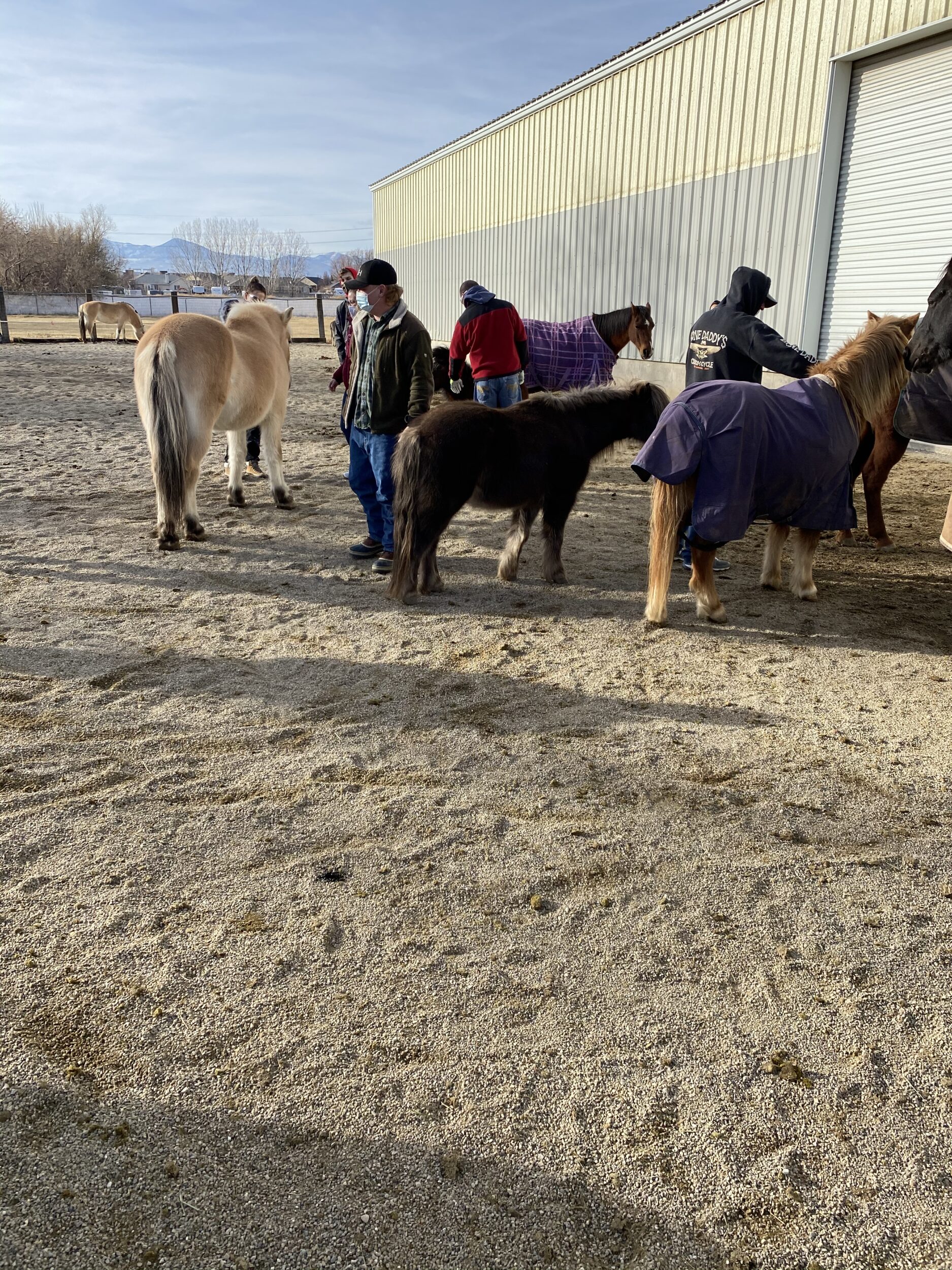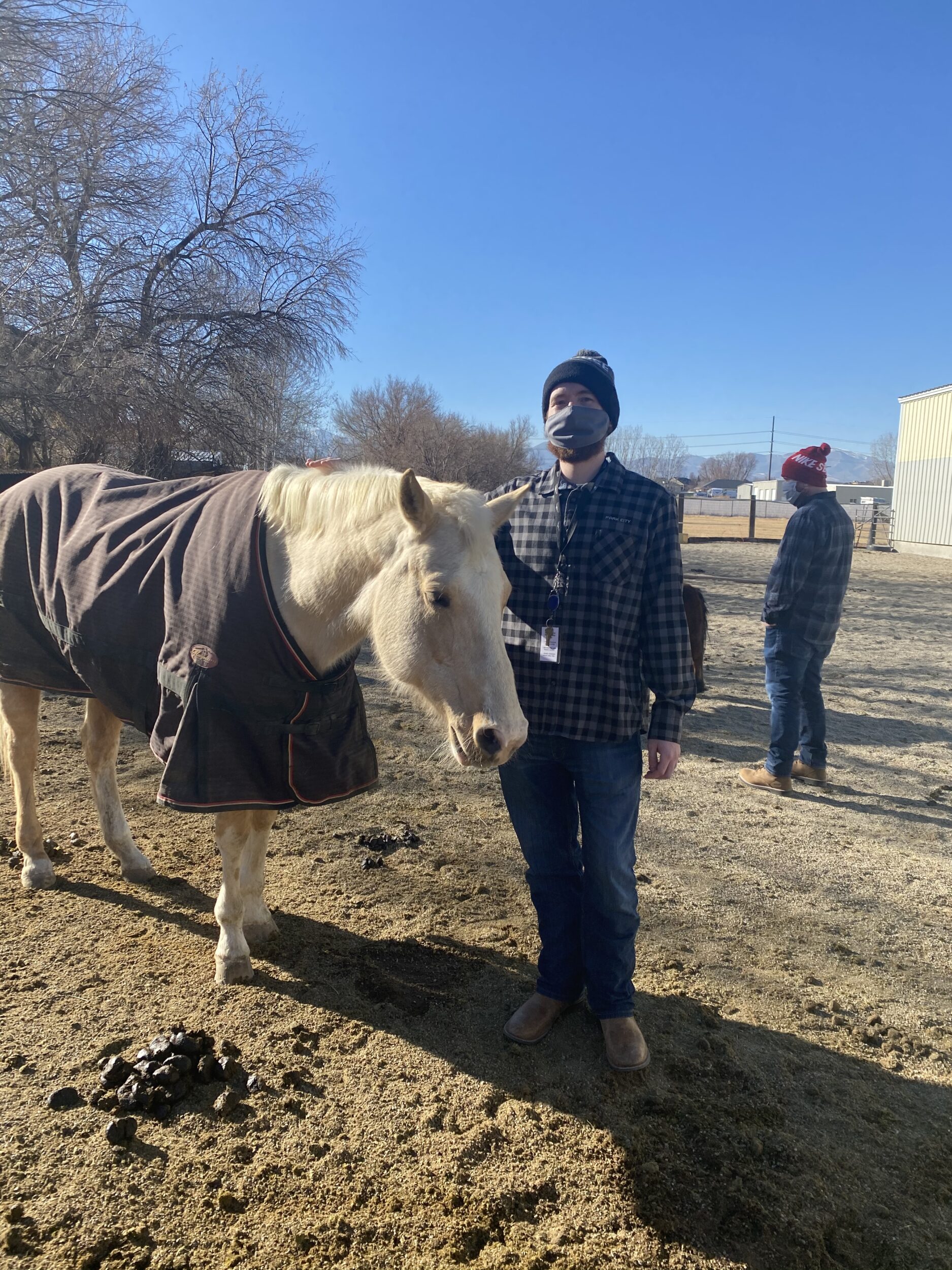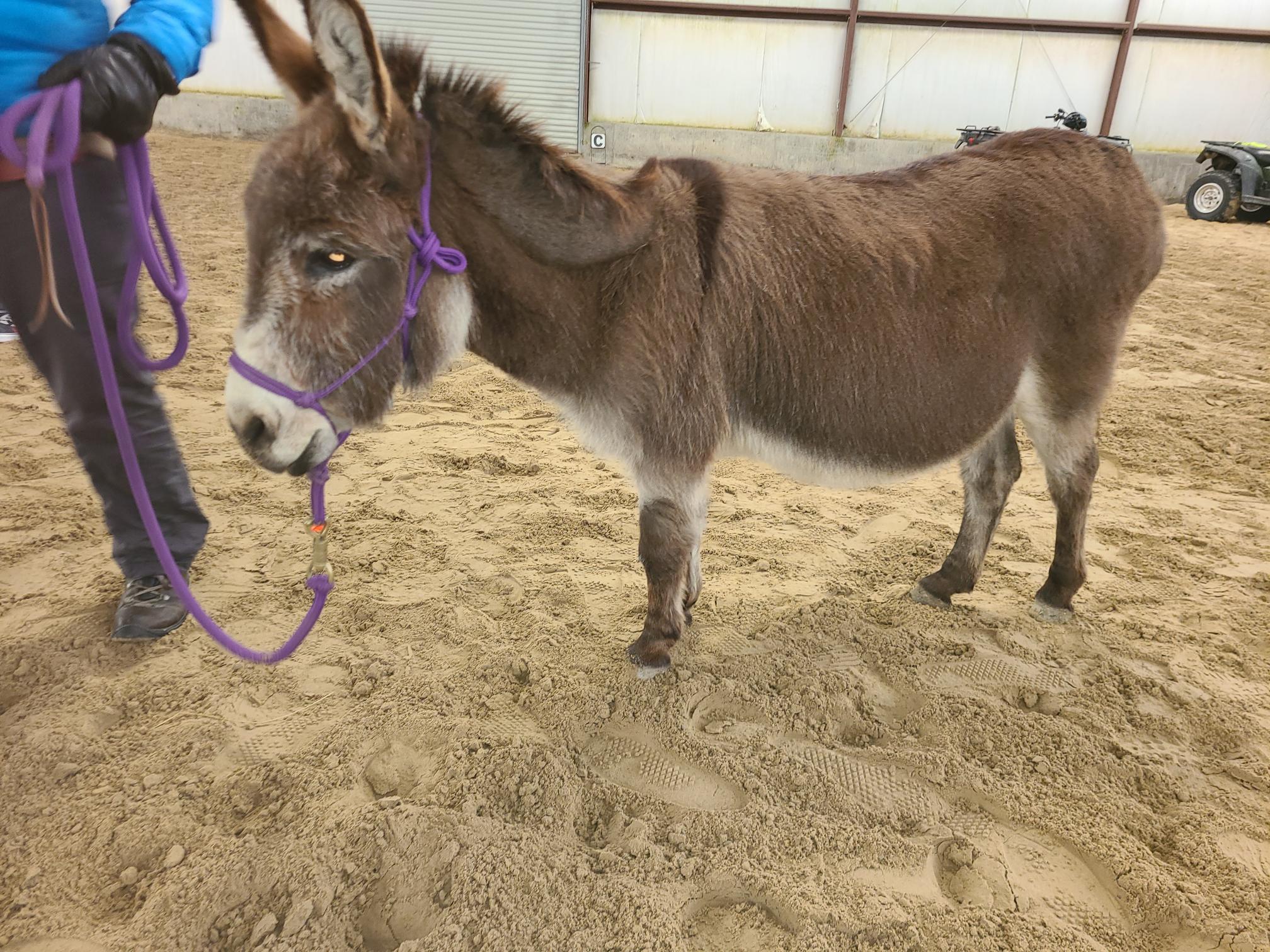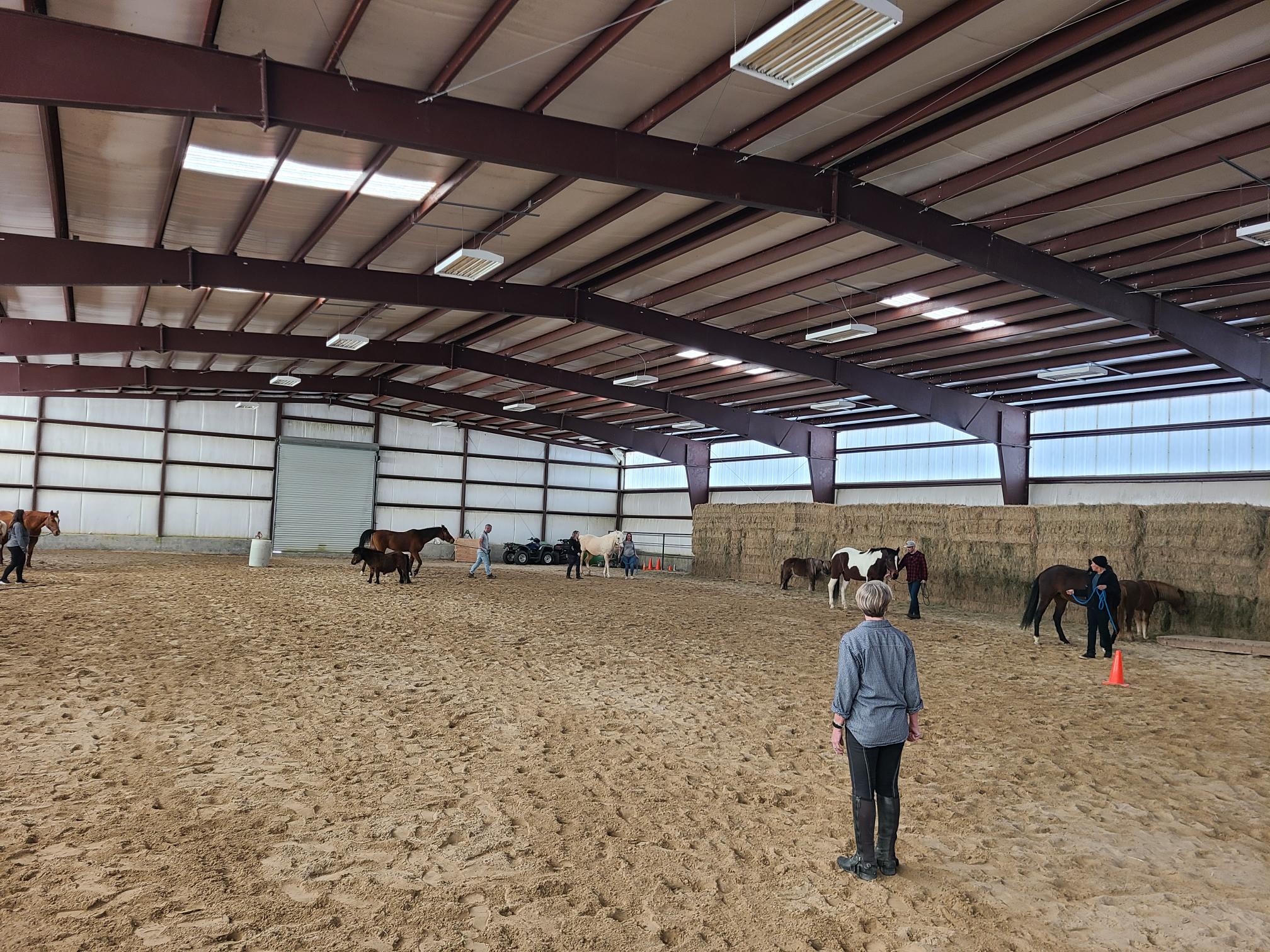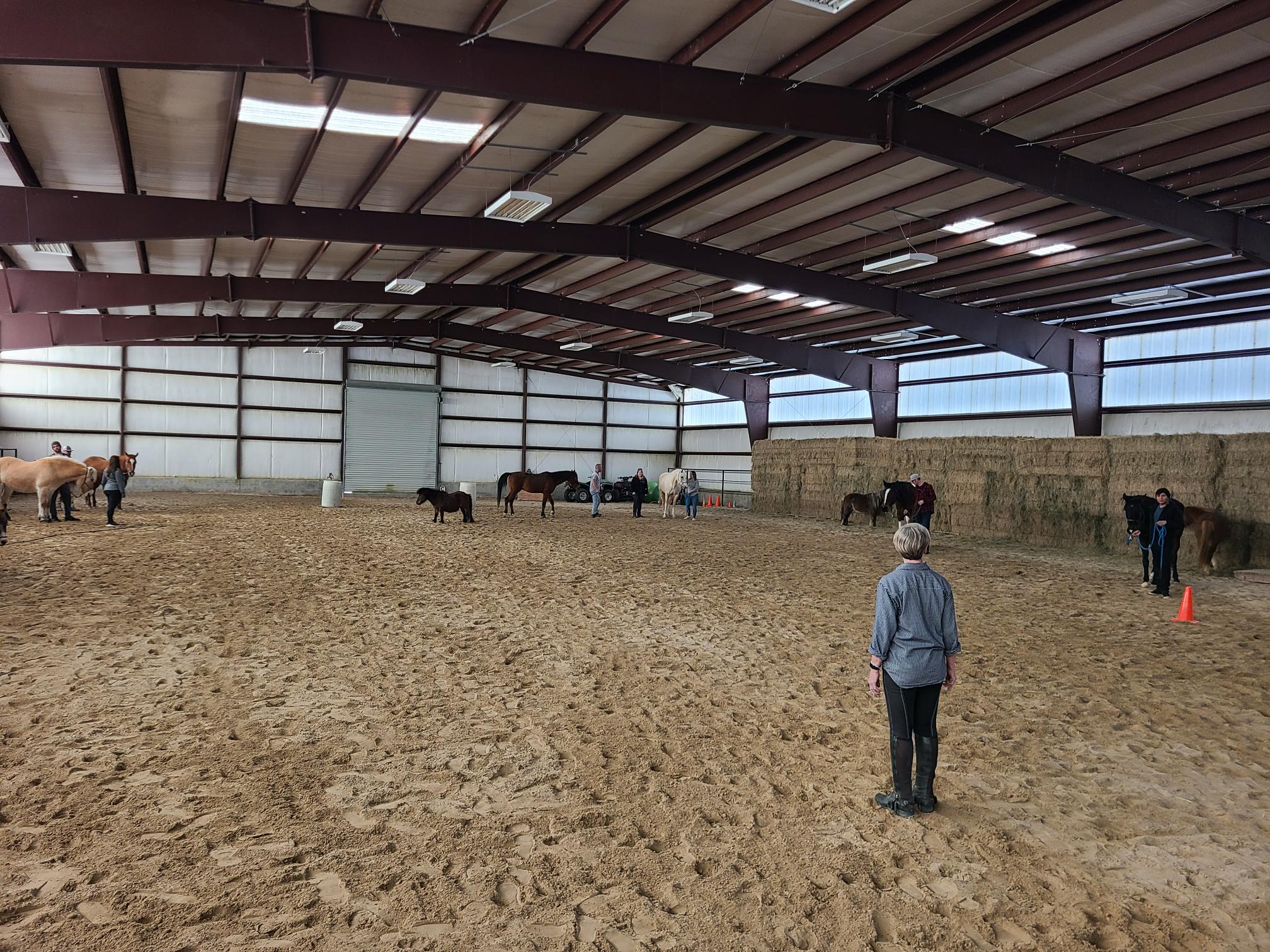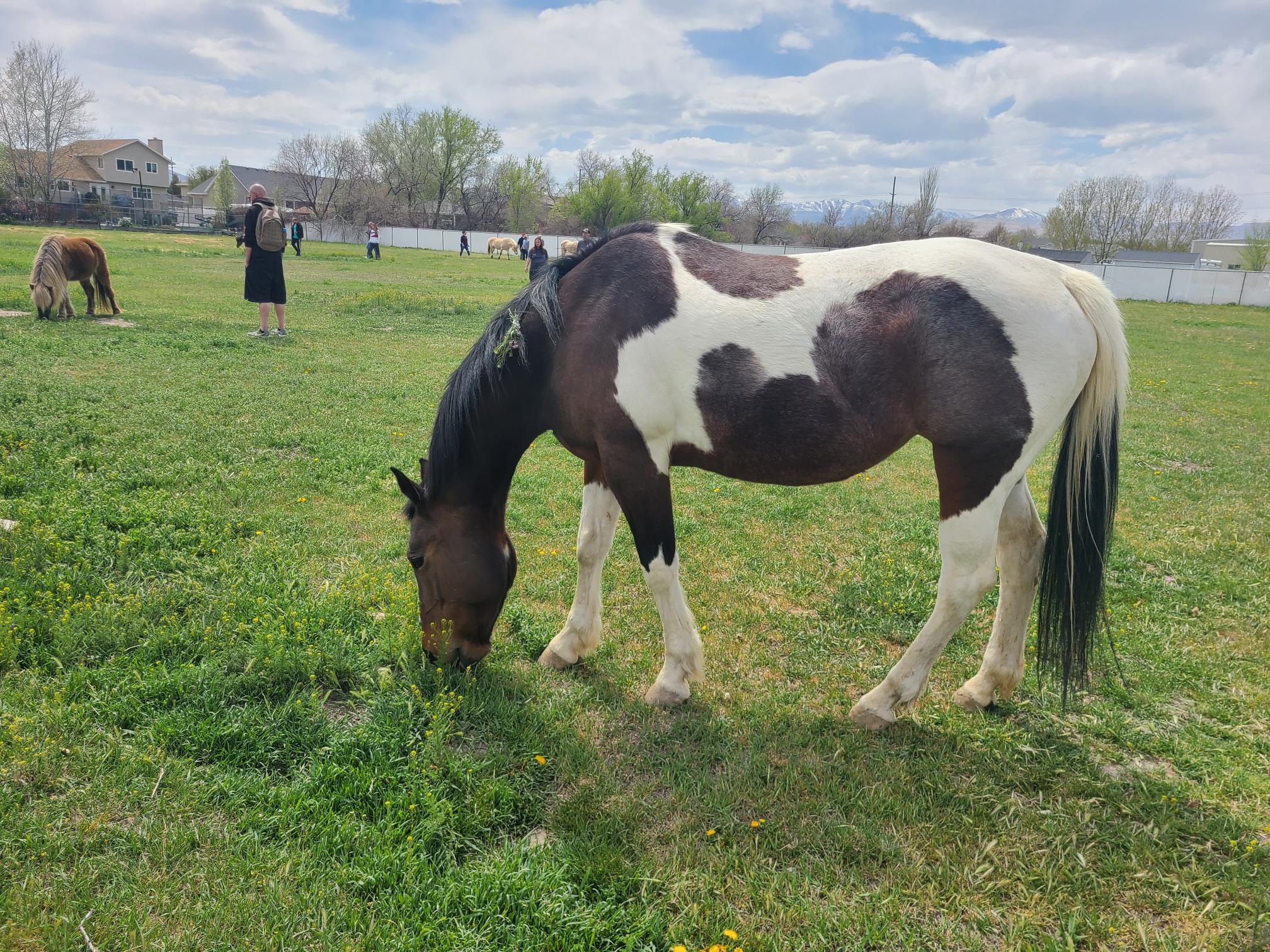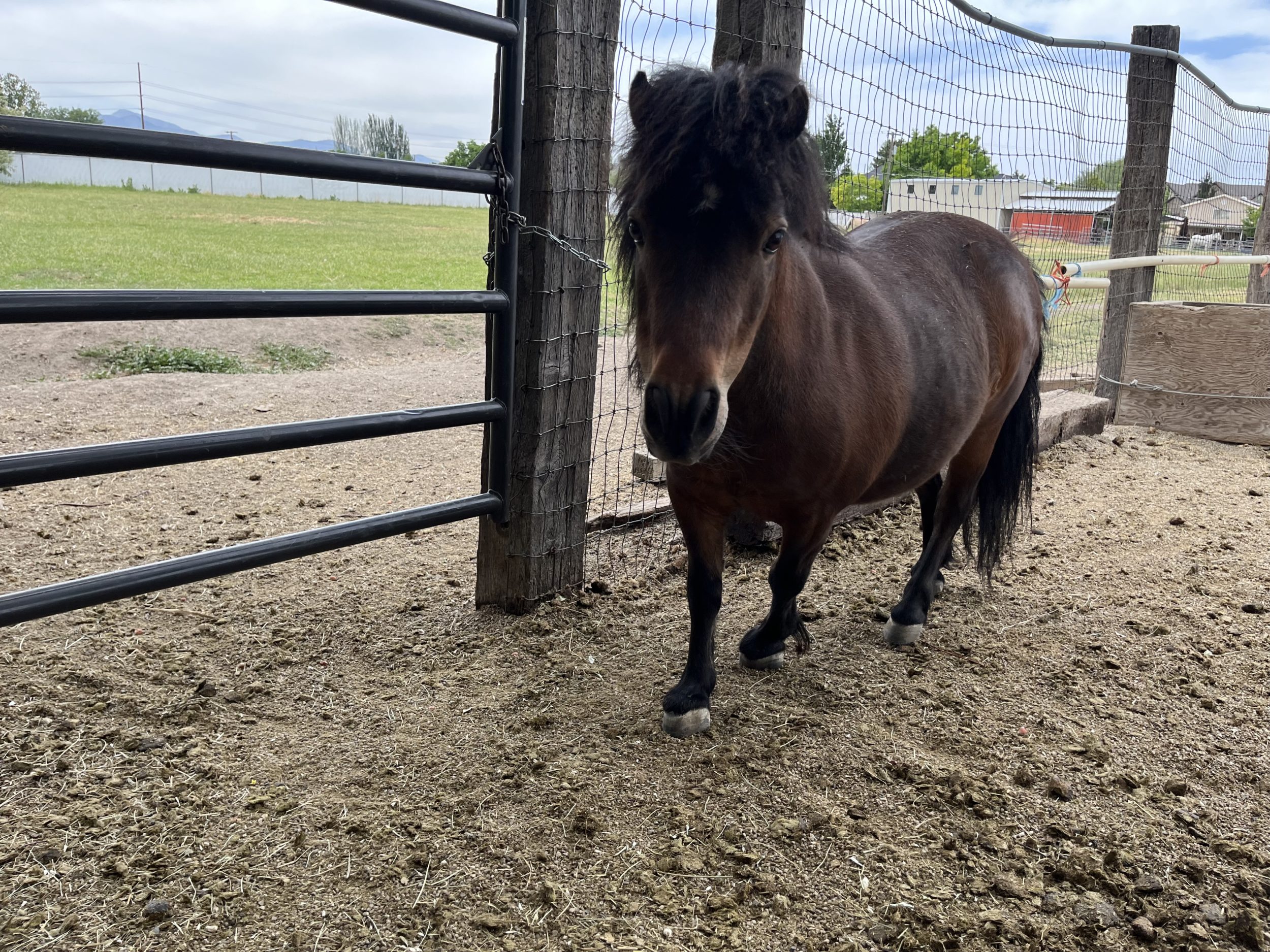Horses and Healing
Wasatch Crest partners with Eagala certified Equine Therapy Specialist, Jolene Greene, LCSW, to offer bi-weekly equine therapy sessions for clients. As part of Wasatch Crest’s experiential therapy program, equine therapy outings help clients heal from addiction, behavioral disorders, depression, anxiety, and trauma. Amazingly intuitive animals, horses are able to connect with humans on a unique level, while providing therapeutic takeaways for clients each time they meet.

Equine Therapy Sessions
To begin each session, clients are encouraged to check in with their current emotional state. After establishing emotional awareness, clients privately tell the horses about their day. The clients choose their horse based on which one they feel the most connected with.
All sessions are ground-based, and no horseback riding is involved, allowing horses and humans to become equal partners on the same team. Unencumbered by a rider, the horses are able to interact freely with the client. When specific ground-based exercises are implemented, horses become metaphoric for many life-lessons.
Throughout the session, clients work to groom, halter, and build obstacles for their horses. The therapeutic exercises allow clients to explore, problem-solve, and overcome challenges. By interacting with the highly intuitive horses, clients can work through their struggles without the fear of judgment or interpretation from another person.
Benefits of Working With Horses
Horses are highly intuitive.
To evade predators, horses have evolved to be extremely sensitive to their environment. They instinctively analyze and react to body language and other nonverbal cues, providing clients with valuable feedback and insights for other areas of their lives.
Additionally, horses’ hearts produce electromagnetic fields sixty times greater than that of a human heart. Because of this, the client's heart can sync up with their horse, which can increase the client's beta-endorphins, dopamine, serotonin, and oxytocin levels.
Horses sheer size and presence offer opportunities for growth.
Horses’ size and presence make them difficult to ignore, just like the struggles that many clients face. When humans approach a horse, they are able to reflect on how they approach their problems and relationships.
Horses have distinct personalities.
Horses are social animals possessing defined roles within their herd. They have distinct personalities, attitudes, and moods. In other words, horses are a lot like humans and offer a helpful metaphor for practicing social interactions.
Who Can Benefit From Equine Therapy?
Being around horses is healing. This sentiment is expressed by many horse owners, indicating that nearly any human can benefit from time spent with a horse. The soothing presence of horses is beneficial to many people with special needs. In our setting, we observe the therapeutic value of horses in the area of recovery from addiction. People in recovery can benefit from equine therapy in a number of ways, including building feelings of adequacy and self-worth. Establishing a relationship with a horse during these unique therapy sessions is often a completely new experience for our clients, one in which there is an opportunity to foster trust and unconditional love.
Is Equine Therapy Good For Trauma?
Trauma survivors can absolutely benefit from experiential learning that involves interaction with horses. Through our experience with our clients who have engaged in equine therapy, we have seen their recovery process enhanced in a way that restores them to a normal window of tolerance. This means that they regain better nervous system regulation, a reduction in their heightened threat response in normal situations, better control over their coping strategies, and a movement toward secure attachments.
Why Are Horses Good Therapy Partners?
It is often said that horses are good therapy partners, particularly in recovery, because they require work. This is true, and there is much more to the process than building awareness around the work it takes to support oneself and care for others.
Horses wear their emotions on their sleeves, so to speak. Being herd and prey animals, their emotional sense is extraordinarily strong. This is how they survive. If one horse in the herd is frightened, every other horse in the herd responds. This heightened emotional sense makes horses great mirrors of the human emotional state. One of the primary issues in addiction recovery is a lack of ability to name and claim one's emotional state. Horses are great teachers through their physical feedback of the energy with which they are approached. For example, if a client approaches a horse and snatches its lead quickly, the horse will likely respond by pulling away. In this way, the horse invites the client to recognize their own feeling state, something they have shied away from via addiction. In a working relationship with a horse, clients also may observe certain primal reactions of fear that trigger their own feelings of fear and helplessness at earlier life events. The emotional reaction in this type of situation can be brought to the client's talk therapy session for processing.
Being emotionally sensitive, horses are honest and trusting. They are majestic and also gentle. In the therapeutic setting, the gentleness that a horse brings to its human partner can be immensely healing. For some, it is one of the few times they have experienced such trust and safety with another. The sensation of acceptance and kindness sets the stage for the feelings that the client deserves to experience in their human world.
What Kind of Results Does Equine Therapy Offer?
The trusting, open nature of horses can pave the way to a greater sense of personal value even among people who are loved and supported by family and friends. With this new sense, the negative thought patterns and strategies that had once obstructed long-term recovery become much less dominant.
Equine Therapy Specialist
Eagala certified Equine Therapy Specialist, Jolene Green, LCSW, leads the equine therapy sessions for Wasatch Crest clients. Every certified Eagala practitioner is a credentialed mental health professional or equine specialist. As an Eagala practitioner, Jolene has completed the Eagala standardized hands-on training, assessment, and mentorship. She is adept at implementing the principles of the Eagala Model, tailoring sessions to treatment goals, and using a variety of process skillsets.
The Eagala Model
The Eagala Model is a global standard in equine-assisted psychotherapy and personal development. The model offers an emotionally safe, hands-on experience for clients. With real-time feedback, clients are able to approach issues in a unique way, where traditional talk-based therapies may leave off.
The model requires a licensed, credentialed mental health professional and a qualified equine specialist. The team incorporates horses into sessions to effectively address clients’ treatment plans and learning goals. The basis of the Eagala model is the belief that all clients have the best solutions for themselves when given the opportunity to discover them.
